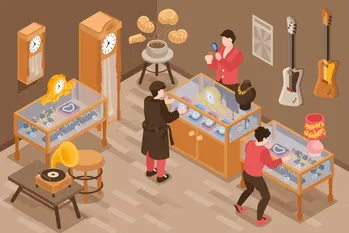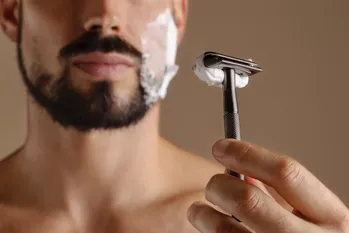In recent times, the rising cost of living has forced many people to look for ways to cut back on expenses. However, cutting back does not mean you have to give up all the things you enjoy doing. In fact, there are plenty of affordable hobbies that you can take up right now that won't break the bank. In this article, we will explore some cheap hobbies that will help you save money while still providing you with fun and fulfillment.
Introduction
Many people take up hobbies for a variety of reasons, such as learning new skills, meeting new people, or simply having fun. Regardless of the reason, there is no denying that hobbies can be expensive. From equipment and supplies to membership fees and classes, it can sometimes feel like participating in certain hobbies requires a substantial financial commitment. However, this does not have to be the case. There are plenty of affordable hobbies out there that won't cost you an arm and a leg.
In fact, the rising cost of hobbies has led many people to look for cheaper alternatives. Whether it's because they want to save money or because they can't afford the high costs associated with traditional hobbies, cheap hobbies have become increasingly popular in recent years. In this article, we will explore some cheap hobbies that are both enjoyable and affordable.
List of Cheap Hobbies
Nature Walks
Nature walks are a fantastic way to enjoy the outdoors without spending any money. All you need is a pair of comfortable shoes and a sense of adventure. Nature walks offer many benefits, including fresh air, exercise, and improved mental health. Whether you prefer hiking through the mountains or strolling along the beach, nature walks are an excellent choice for those looking to save money on their hobbies.
Nature walks are a peaceful and affordable hobby that can help you reconnect with nature, improve your physical health, and enrich your mental wellbeing. Whether you prefer forest trails, beachfront strolls, or urban parks, there are countless ways to enjoy this simple yet rewarding activity. Here's how to get started:
Explore local parks: Many cities and towns offer free or low-cost access to local parks and nature reserves that offer walking trails, picnic areas, and wildlife viewing opportunities. These resources allow you to explore the natural beauty of your area and learn about local flora and fauna.
Join a nature group: Nature walks are more enjoyable when shared with others. Look for local nature groups or online communities where you can connect with other walkers, share tips, and discover new trails and sights. This can also help you stay motivated and accountable in your walking goals.
Use technology: With the rise of GPS apps, mapping tools, and weather forecasts, it's never been easier (or safer) to plan your nature walks. Look for affordable options like AllTrails, GaiaGPS, or Weather Underground that offer detailed maps, trail guides, and real-time updates on weather conditions.
Bring a companion: Nature walks can be more enjoyable when shared with a friend, family member, or pet. This can also help you stay safe in case of emergencies and provide social support for your walking goals.
Practice mindfulness: Nature walks should be a reflective and meditative experience that helps you connect with nature and yourself. Look for ways to practice mindfulness through deep breathing, visualization, or meditation exercises that help you focus on the present moment and appreciate the beauty of the natural world around you.
By following these tips, you can start enjoying the many benefits of nature walks without breaking the bank. Whether you prefer forest trails, beachfront strolls, or urban parks, there's always something new to discover in this rich and rewarding hobby!
Reading
Books and e-books can be purchased at very reasonable prices, making reading a cheap hobby that is both enjoyable and educational. Whether you prefer fiction or nonfiction, there are plenty of books out there to suit your taste. Reading can help improve your vocabulary, increase your knowledge, and reduce stress levels, making it an excellent choice for those looking for a relaxing and affordable hobby.
Reading is a delightful and affordable hobby that can transport you to new worlds, broaden your perspectives, and improve your cognitive skills. Whether you prefer classic literature, bestsellers, or self-help books, there are countless resources available online and offline that can help you nurture your love of reading without breaking the bank. Here's how to get started:
Explore free resources: Many libraries, schools, and community centers offer free access to books, ebooks, audiobooks, and magazines that you can borrow or download at no cost. These resources allow you to explore a wide variety of genres and authors without spending a dime.
Join book clubs: Reading is more enjoyable when shared with others. Look for local book clubs or online communities where you can connect with other readers, discuss books, and share recommendations. This can also help you stay motivated and accountable in your reading goals.
Utilize digital resources: With the rise of ebooks, audiobooks, and subscription services, it's never been easier (or cheaper) to access a wide variety of books and resources. Look for affordable options like Kindle Unlimited, Scribd, or Audible that offer thousands of titles at a low monthly fee.
Attend book fairs: Book fairs are a great way to discover new authors, genres, and titles at discounted prices. Many book fairs offer free admission, workshops, and author panels that can enrich your reading experience.
Read widely: Reading should be a diverse and enjoyable experience, not just a chore or a duty. Look for books across different genres, authors, and cultures to broaden your perspectives and challenge your mind. This can also help you discover new favorites and recommendations.
By following these tips, you can start enjoying the many benefits of reading without breaking the bank. Whether you prefer classic literature, bestsellers, or self-help books, there's always something new to discover in this rich and rewarding hobby!
Knitting
Knitting is an incredibly satisfying and affordable hobby that allows you to create beautiful and functional items while also improving your hand-eye coordination and reducing stress. Whether you're a beginner or an experienced knitter, there are plenty of resources available to help you get started. Here's how to start knitting on a budget:
Gather your supplies: All you need to get started with knitting is some basic equipment and yarn. You can find affordable knitting needles at craft stores or online retailers, and many local thrift stores also carry gently used sets of needles. As for the yarn, look for sales or discounts at your favorite craft store, or try out some recycled materials like old sweaters or scarves that you already own.
Learn the basics: There are plenty of free resources available online to help you learn how to knit. Websites like KnittingHelp.com offer detailed video tutorials on everything from casting on to finishing a project, while social media communities like Ravelry and Instagram's #knitting hashtag can connect you with other hobbyists who are happy to answer questions and provide inspiration.
Choose your first project: There are plenty of beginner-friendly patterns out there, so don't feel discouraged if your initial attempts aren't perfect. Consider starting with a simple scarf or hat that will allow you to practice basic stitches like knit and purl. As you gain confidence, you can gradually work your way up to more complex projects like sweaters and blankets.
Join a local knitting group: Connecting with other knitters in your community can be incredibly rewarding, as it provides an opportunity to learn new techniques, share resources, and get feedback on your projects. Many libraries and senior centers offer free knitting groups, or you could try searching online for meetups in your area.
Repurpose old items: If you already own a sweater or scarf that's seen better days, consider turning it into something new by unraveling the yarn and using it for your next project. Not only will this save you money on materials, but it also gives you an opportunity to practice your skills at undoing stitches and working with smaller yarn weights.
By following these tips, you can start knitting today without breaking the bank. With a little bit of patience and practice, you'll soon be creating beautiful and functional items that you'll be proud to show off to your friends and family. Happy knitting!
Gardening
Starting a small indoor or outdoor garden is another cheap hobby that offers many benefits. Seeds can be found at most hardware stores and supermarkets, making them very affordable. Gardening provides a sense of accomplishment as you watch your plants grow and flourish. It's also an excellent way to improve your physical health, as gardening requires a fair amount of exercise.
Gardening is a relaxing and rewarding hobby that doesn't have to break the bank. In fact, it's one of the most cost-effective hobbies you can start today. All you need is a little bit of space, some seeds or plants, and a few essential tools to get started.
Firstly, you don't necessarily need an entire backyard to cultivate a garden. If you live in an apartment, consider starting small with containers or window boxes filled with herbs or vegetables. You can find affordable seed packets at your local hardware store or online, and many of these plants require little more than water and sunshine.
Secondly, if you have a little more space to work with, invest in some soil testing kits to determine the pH levels and nutrient content of your garden area. This will help you determine what crops are best suited for that particular plot, which can save you money in the long run by preventing wasted resources on unsuitable plants.
Thirdly, consider starting a compost bin to recycle food waste into rich, organic soil for your garden. This is an eco-friendly and cost-effective way to provide your garden with nutrient-dense soil without having to purchase expensive fertilizers or soil amendments.
Finally, gardening can be a social activity as well. Look for local community gardens or gardening groups in your area. These groups often share resources such as tools and plants, making gardening an even more cost-effective hobby.
In conclusion, gardening is an affordable and fulfilling hobby that offers numerous benefits including fresh produce, stress relief, and a connection to nature. With just a few essential tools and some seeds or plants, you can start cultivating your own garden today. So why not give it a try? Your wallet and your taste buds will thank you!
Painting and Drawing
Art supplies like paintbrushes, paper, and watercolors are very affordable and can be found at most craft stores. Painting and drawing are great ways to express yourself creatively without spending a fortune on expensive equipment or classes. Whether you prefer acrylics or watercolors, there's a medium out there that will suit your style.
Painting and drawing are creative pastimes that don't have to be expensive hobbies. In fact, with a few simple supplies and some inspiration, you can start creating beautiful works of art right at home. Here's how to get started with affordable painting and drawing:
Invest in essential supplies: While you don't need the most expensive paint or paper to create stunning artwork, there are a few essential supplies that can make your experience more enjoyable and productive. Consider investing in basic materials like sketch pads, pencils, erasers, watercolor paints, brushes, and palette knives. You can find affordable options at discount stores, online retailers, or even local garage sales and thrift shops.
Explore online resources: The internet is a wealth of inspiration and information for artists of all levels. From tutorials to instructional videos to online communities, there are countless resources available to help you learn new techniques, styles, and ideas. Check out websites like Skillshare, Udemy, and Drawspace to discover new insights and tips from professional artists around the world.
Practice regularly: Like any skill, painting and drawing require regular practice to improve. Set aside time each week or day to work on your craft, whether it's for 15 minutes or a few hours. The more you practice, the more confident and proficient you'll become, and the more enjoyment you'll derive from creating art!
Get feedback: Whether it's through online communities or local workshops, seeking out constructive feedback can help you identify areas for improvement and refine your skills. Consider joining a critique group or taking a course with other artists to learn new perspectives and techniques.
Embrace experimentation: Don't be afraid to try new materials, styles, and ideas in your artwork! Sometimes the most exciting discoveries come from taking risks and trying something different. Whether it's mixing new colors or using unconventional tools, embrace the spirit of experimentation and enjoy the process of creating art!
By following these tips, you can start enjoying affordable painting and drawing experiences that are both fun and fulfilling. Whether you're a beginner just starting out or an experienced artist looking to refine your skills, there's always something new to discover in the world of art!
Learning a Language
There are many free resources available online for language learning, such as apps, podcasts, and YouTube channels. Learning a new language is an excellent way to challenge yourself mentally and increase your cultural awareness. Whether you prefer Spanish or Mandarin, there's a language out there that will suit your needs.
Learning a new language can be an incredibly rewarding and enriching experience, but it doesn't have to cost a fortune. With the help of online resources, community centers, and local schools, you can master a new tongue without breaking the bank. Here's how to get started:
Research your options: Before diving into language learning, do some research to find out what resources are available in your area. Look for free or low-cost classes at community centers, libraries, or schools, as well as online courses and resources that you can access from the comfort of your own home.
Practice regularly: Learning a new language requires consistent practice and repetition over time. Set aside a few hours each week to study grammar rules, vocabulary lists, and conversation prompts. You can also listen to podcasts or watch TV shows in the target language to improve your listening skills.
Immerse yourself: One of the most effective ways to learn a new language is to immerse yourself in the culture and environment. Look for language exchange programs, cultural events, or study abroad opportunities that allow you to interact with native speakers and practice speaking in real-life situations.
Use technology: There are many affordable or free language learning apps and tools available online that can help you learn at your own pace and convenience. From Duolingo to Babbel, these resources offer interactive lessons, quizzes, and games to improve your skills in a fun and engaging way.
Find a study group: Learning a new language can be more effective and enjoyable when done with others. Look for local study groups or online communities where you can connect with other learners, share resources, and practice speaking together.
By following these tips, you can start enjoying the benefits of learning a new language without breaking the bank. Whether you're a beginner just starting out or an experienced learner looking to improve your skills, there's always something new to discover in this rich and rewarding hobby!
Exercising
Exercise can be enjoyed for free by simply going for a run, doing some yoga in the park, or finding a local gym offering discounted rates. Exercise is an excellent way to improve your physical health and reduce stress levels. Whether you prefer weightlifting or Pilates, there's an exercise program out there that will suit your needs.
Fitness doesn't have to be an expensive and daunting task. In fact, there are plenty of affordable ways to stay active and improve your health right from the comfort of your own home. Here's how to start a budget-friendly fitness routine:
Create a workout plan: Before you dive into your new fitness routine, it's important to set some goals and create a plan that works for you. Start by identifying which areas of your body you want to focus on (e.g., arms, legs, core), then research some simple exercises that target those muscles. You can find plenty of free workout videos on YouTube or social media platforms like TikTok, or consult a fitness expert or personal trainer for guidance.
Invest in basic equipment: While you don't need a gym membership or expensive home gym equipment to get started with fitness, there are a few items that can make your workouts more effective and enjoyable. Consider investing in some resistance bands, exercise balls, or dumbbells (you can find affordable options at local thrift stores or online retailers), as well as a sturdy mat for floor exercises like push-ups and sit-ups.
Utilize bodyweight workouts: If you don't have access to equipment or prefer a low-impact workout, there are plenty of bodyweight exercises that can be done without any equipment at all. Some great options include squats, lunges, planks, and burpees. Not only are these exercises free, but they also work multiple muscle groups at once, making them an efficient way to build strength and endurance.
Take advantage of outdoor fitness opportunities: Depending on the weather in your area, there may be plenty of free and fun ways to stay active outside. Consider going for a run or bike ride around your neighborhood, taking a hike in a nearby park, or joining a local sports league for some friendly competition.
Stay motivated: One of the biggest challenges of starting a fitness routine is staying consistent and motivated. To help you stick with it, consider setting up a workout schedule that fits into your daily routine (e.g., working out first thing in the morning or during your lunch break), as well as finding a workout buddy or support system to keep you accountable. You can also try setting small, achievable goals for yourself (e.g., completing a certain number of push-ups in a row) and celebrating your progress along the way.
By following these tips, you can start a budget-friendly fitness routine that works for you. With a little bit of dedication and creativity, you'll soon be feeling stronger, healthier, and happier than ever before.
Fishing
Fishing is a popular pastime for many people, but it doesn't have to be an expensive hobby. In fact, there are plenty of ways to enjoy a day on the water without breaking the bank. Here's how to get started with affordable fishing:
Borrow or rent equipment: If you don't already own fishing gear, consider borrowing some from a friend or family member instead of buying your own. Many outdoor stores also offer rental equipment, which can be a great way to try out different types of rods and reels before making a purchase.
Focus on local fishing spots: Instead of traveling far and wide to find the perfect spot, look for fishing opportunities in your own backyard. Many lakes, rivers, and ponds are stocked with fish and offer free or low-cost fishing permits. You can also check online resources like Fishbrain or iangler for recommendations on local hotspots.
Invest in essential equipment: While you don't need the most expensive gear to catch fish, there are a few essential items that can make your fishing experience more enjoyable and productive. Consider investing in a basic rod and reel combo (you can find affordable options at discount stores or online retailers), as well as some hooks, lures, and bait (like worms or minnows).
Learn from experienced anglers: If you're new to fishing, consider seeking out local fishing clubs or joining a guided tour to learn the ropes. These resources can provide valuable tips on technique, equipment, and the best spots to catch fish, as well as connect you with other anglers in your area.
Practice sustainable fishing: To ensure that fishing remains an enjoyable and accessible pastime for generations to come, it's important to practice sustainable fishing practices. This includes following local fishing laws (like catch limits and size restrictions), using barbless hooks to minimize harm to fish, and properly disposing of waste and litter.
By following these tips, you can enjoy affordable and responsible fishing experiences that are both fun and sustainable. Whether you're an experienced angler or a beginner just starting out, there's always something new to discover in the world of fishing!
Cooking
Cooking can be enjoyed for free by using leftover ingredients from previous meals or shopping at discount grocery stores. Cooking is a great way to experiment with new flavors and improve your culinary skills. Whether you prefer Italian or Thai cuisine, there's a recipe out there that will suit your taste.
Cooking is not just a necessity; it can be a fun and fulfilling hobby that doesn't have to break the bank. With a few simple ingredients and some creativity, you can whip up delicious dishes right in your own kitchen. Here's how to get started with affordable cooking:
Plan and shop wisely: Before hitting the supermarket, take some time to plan out your meals for the week. This will help you avoid last-minute impulse buys and ensure that you only buy the ingredients you need. Look for sales, discounts, and bulk deals on items like rice, pasta, canned goods, and spices. You can also try shopping at farmers' markets or co-ops for fresh, locally grown produce at lower prices.
Use what you have: Before buying new ingredients, take a look in your pantry, fridge, and freezer to see what you already have on hand. Get creative with leftovers, canned goods, and frozen veggies to create new dishes. This will not only save you money but also help you use up ingredients before they go bad.
Master basic techniques: Learning a few basic cooking techniques like sautéing, boiling, roasting, and baking can go a long way in creating delicious meals on a budget. These techniques allow you to transform simple ingredients into flavorful dishes without spending a lot of money on fancy equipment or gourmet ingredients.
Embrace versatility: Don't be afraid to use the same ingredients in different ways! For example, chickpeas can be used to make hummus, falafel, or roasted vegetable bowls; and rice can be transformed into a savory pilaf, a sweet dessert, or a hearty breakfast dish. The more versatile your ingredients, the more creative and affordable your meals will be!
Share with others: Cooking doesn't have to be a solitary activity. Invite friends, family members, or neighbors over for dinner parties, potluck dinners, or cooking classes. Not only is this a fun and social way to enjoy delicious food, but it also allows you to share the cost of ingredients and equipment.
By following these tips, you can start enjoying affordable cooking experiences that are both fun and fulfilling. Whether you're a beginner just starting out or an experienced cook looking to refine your skills, there's always something new to discover in the world of food!
Conclusion
In conclusion, there are plenty of affordable hobbies out there that offer many benefits without requiring a substantial financial commitment. From nature walks to cooking, these hobbies provide an excellent way to challenge yourself mentally and physically while enjoying the simple pleasures in life. Whether you prefer reading, painting, or exercising, there's a cheap hobby out there that will suit your needs. So why not try one of these affordable hobbies today? Your mind and body will thank you for it!
FAQ Section
Q: What are some cheap hobbies that I can enjoy without spending a lot of money?
A: Some affordable hobbies include nature walks, reading, gardening, painting and drawing, learning a language through free resources online, exercising at home or finding discounted rates at local gyms, and cooking using leftover ingredients or shopping at discount grocery stores. These hobbies provide an excellent way to challenge yourself mentally and physically while enjoying the simple pleasures in life without requiring a substantial financial commitment.
Q: How can nature walks benefit my health and wellbeing?
A: Nature walks offer many benefits, including fresh air, exercise, and improved mental health. Being outdoors in nature has been shown to reduce stress levels, lower blood pressure, and boost mood and self-esteem. Additionally, the exercise involved in walking can improve cardiovascular health, strengthen bones, and promote better sleep patterns.
Q: How can reading benefit my cognitive abilities and overall wellbeing?
A: Reading is an excellent way to challenge your brain and improve cognitive abilities such as memory, vocabulary, and comprehension skills. It's also a great way to reduce stress levels and provide a mental escape from daily life. By expanding your knowledge through reading, you may gain new perspectives and insights that enrich your overall wellbeing.
Q: How can gardening benefit my physical and mental health?
A: Gardening provides an excellent opportunity for physical activity, such as digging, weeding, and watering plants, which can improve cardiovascular health and strengthen muscles. Additionally, gardening has been shown to have a calming effect on the mind, reducing stress levels and promoting feelings of relaxation and satisfaction.
Q: How can learning a language through free resources online benefit my cultural awareness and cognitive abilities?
A: Learning a new language can improve cognitive abilities such as memory, concentration, and problem-solving skills. It also provides an opportunity to learn about different cultures and perspectives, expanding your worldview and broadening your horizons. By learning a language through free resources online, you may gain fluency without the high cost of traditional language courses or tutors.
Q: How can cooking benefit my health and wellbeing?
A: Cooking provides an opportunity to eat nutritious meals that are tailored to your dietary needs and preferences. By using leftover ingredients or shopping at discount grocery stores, you may save money while also promoting healthy eating habits. Additionally, cooking has been shown to provide a sense of accomplishment and satisfaction, which can promote positive feelings and reduce stress levels.











